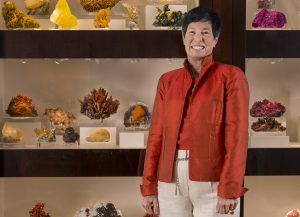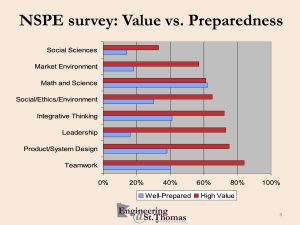We recently wrote about Lyda Hill Philanthropies and its IF/THEN® initiative. Today we want to draw your attention to an exhibit the organization created a few years ago.
To raise the profile of women in STEM careers, IF/THEN commissioned more than 120 life-sized statues to be made at once. Using 3D scanning and printing technologies, the project exhibited the largest collection of women statues ever assembled. In 2020, the statues were displayed all together at NorthPark Center in Dallas in 2021 and at the Smithsonian Institution in Washington, DC, in 2022.
Since then, the statues have been moved to multiple locations across the United States. To find one near you, visit the exhibit site. That page also features profiles of the women honored in the exhibit. To see how the statues were made, watch this short video from Miranda Cosgrove and the CBS program Mission Unstoppable.


